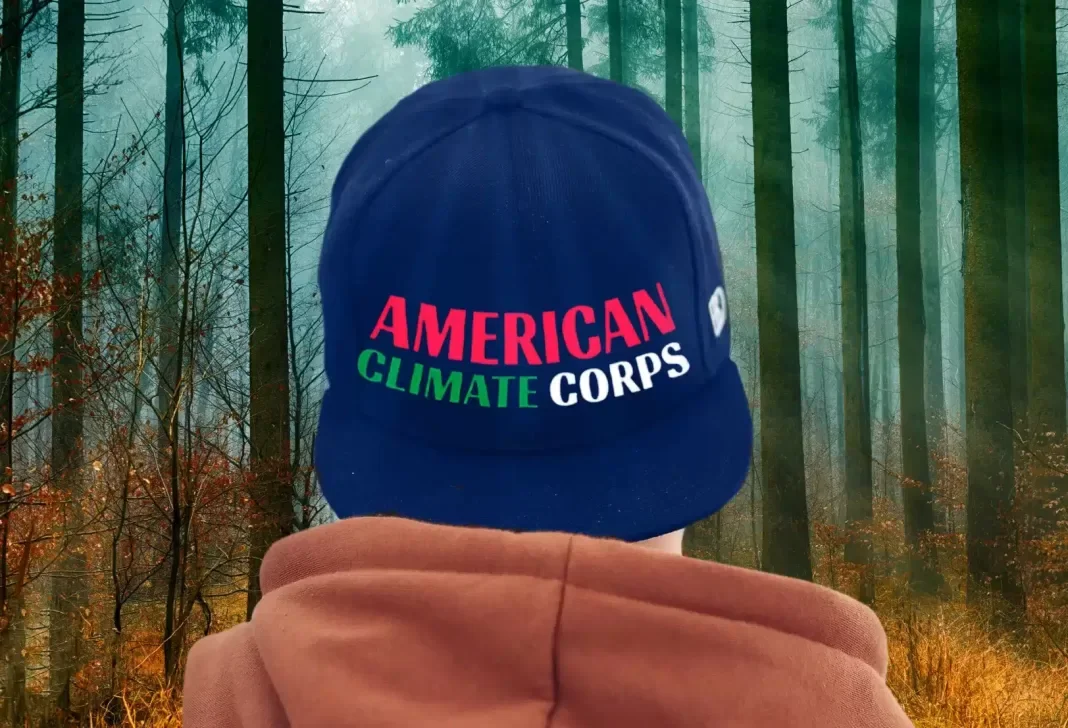President Joe Biden has submitted a request to Congress for $8 billion to fund a New Deal-inspired jobs program, the American Climate Corps, aimed at combating climate change across the United States.
The proposal, outlined in the president’s 2025 budget, entails allocating the fund over a decade to support the hiring of 50,000 new workers annually by the year 2031. The initiative comes in response to President Biden’s recent pledge to triple the workforce of the American Climate Corps program. It serves as the climate army of the current administration, while opponents call it a “woke and wasteful program”.
In the ongoing battle against climate change, the program emerges as both a beacon of hope and a lightning rod for controversy. Its supporters champion its potential to create jobs and combat environmental challenges. However, critics question its efficacy, funding sources, and long-term impact.
The program seeks to emulate the spirit of the Green New Deal by providing employment opportunities to young individuals. It garnered support from Democratic lawmakers including Representative Alexandria Ocasio-Cortez and Senator Ed Markey.
About $10 billion initially designated for the program was omitted from President Biden’s landmark climate legislation, the Inflation Reduction Act. However, last September, the White House announced a scaled-back version of the initiative.
What is the American Climate Corps Program?
Introduced in 2023, the ACC represents the latest initiative aimed at bolstering employment opportunities within the emerging clean energy sector. It was originally envisioned to engage 1.5 million young people.
The program collaborates with federal agencies such as the Department of the Interior, Department of Labor, and Department of Energy, as well as organizations like AmeriCorps, to facilitate recruitment and training processes. It aims to provide training to young Americans, equipping them with the skills necessary for roles in various areas. These include the following:
- Restoring coastal wetlands
- Building community resilience against natural disasters
- Deploying renewable energy infrastructure, and
- Implementing energy-efficient appliances.
The administration intends to recruit around 20,000 individuals to perform these various roles.
According to the White House, around 50,000 Americans have expressed interest in participating in the job training program. The program offers opportunities for young people to earn $15 per hour while acquiring skills in wildfire prevention, forest management, and other areas.
President Biden’s American Climate Corps draws inspiration from the former Pres. Roosevelt’s Civilian Conservation Corps. It’s a New Deal program launched in 1933 to combat the Dust Bowl and the Great Depression challenges.

The Pros and Cons of the ACC Program
However, the new Climate Corps has faced criticism from Congressional Republicans, who are unlikely to approve it in its current form. The conservative think tank Americans for Tax Reform has publicly criticized the program. Grover Norquist, the president of the organization, characterized the program as constructing an “extralegal political machine” using taxpayers’ money.
In gist, here are the benefits and challenges of the current administration’s American Climate Corps program.
The Pros of ACC:
- Job Creation. The ACC aims to create over 20,000 new jobs by training them in various fields related to climate change mitigation and clean energy.
- Addressing Climate Change. The program focuses on combating climate change by undertaking tasks such as restoring wetlands, building resilience against natural disasters, deploying renewable energy, and promoting energy-efficient practices.
- Incentives and Collaboration. It incentivizes participation through programs like AmeriCorps and fosters collaboration between federal agencies, states, labor unions, nonprofits, and private sectors to address the climate crisis.
- Potential for Economic and Environmental Benefits. The program not only creates job opportunities but also helps in mitigating the effects of climate change. Thus, it can potentially satisfy both economic and environmental objectives.
The Cons of ACC:
- Dependence on Participation. Success of the program relies on the willingness of young Americans to undergo the necessary training, which may not be universally embraced.
- Lack of Specifics. There’s criticism regarding the lack of clarity on how the program will effectively combat climate change and reduce emissions, leading to uncertainty about its long-term impact.
- Political Opposition. Some individuals, particularly Republicans, may oppose the transition to clean energy jobs, which could affect the program’s implementation and support, especially in the context of upcoming elections.
- Uncertainty of Effectiveness. While the program is seen as a positive initiative, its effectiveness and worthiness of government funding remain uncertain without detailed plans on how it will achieve its goals and address the environmental crisis.
In conclusion, the American Climate Corps Program offers potential benefits such as job creation and climate change mitigation. However, its success hinges on addressing challenges like participation, clarity of objectives, political opposition, and demonstrating effectiveness in achieving its goals. So long it tackles these concerns, the program could be worth funding.

